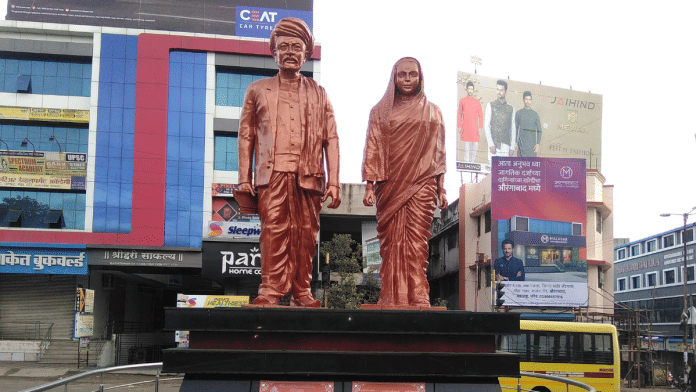
Thank you dear subscribers, we are overwhelmed with your response.
Your Turn is a unique section from ThePrint featuring points of view from its subscribers. If you are a subscriber, have a point of view, please send it to us. If not, do subscribe here: https://theprint.in/
In Maharashtra, Father of the Nation Jotirao Phule protested against religious scholars. Hence he is called Martin Luther of Maharashtra. He raised the struggle for independence for all Bahujans including Brahmin women in India. So Dr. Babasaheb Ambedkar used to consider him as Guru. He had translated Vajrasuchi, a Sanskrit Buddhist text. Gandhi had read Mahatma Phule’s literature while in Pune’s Yerwada Jail. At that time he had said that the real father of the nation is Jotirao Phule. In 1954 AD, Acharya Atre made the movie Father of the Nation Jotirao Phule. His premier show Dr. Babasaheb Ambedkar was invited. Speaking at that time, Dr. Babasaheb Ambedkar had said that ‘Father of the Nation Jotirao Phule’s movement left his followers. But I am carrying forward their movement.’ He advocated the great principles of freedom, equality, fraternity and justice. It is everyone’s responsibility to follow their principles.
Father of the Nation Jotirao Phule was born on 11 April 1827. He died on 28 November 1890. His native village was Katgun in Satara district. His ancestors came to Pune due to conflict with casteism in the village. His real name was Gore. He got married to Savitri Mai at a young age. He opened the first school in 1848 for girls of all communities and then in 1851 he opened a school for Scheduled Caste boys. Although Jotirao Phule was a social reformer, he did not believe in superficial reforms. He challenged the society based on social inequality, injustice and exploitation. To struggle against the prevailing social order, he formed an organization of Bahujans and named it “Satya Shodhak Samaj”.
During that time he wrote the play ‘Tritiya Ratna’ and first of all demanded reservation. In the year 1869, Chhatrapati Shivaji Maharaj’s tomb was found by him in Raigad and the place was cleaned by him and he first celebrated Shiv Jayanti.
Then, he gave a statement before the Hunter Commission in 1882. Further, he asked Keluskar Guruji to write the biography of Tathagata Buddha and Chhatrapati Shivaji Maharaj and that biography was written by Keluskar Guruji was gifted to Dr Babasaheb Ambedkar on the occasion of his 10th pass. Because of them, Dr. Babasaheb Ambedkar got to know Buddha and Dr. Babasaheb Ambedkar introduced Buddha again to India.
Jotirao Phule fought against apartheid, casteism, superstition, religious hypocrisy.
He has given a famous thought,
“Lack of education leads to lack of wisdom,
which leads to lack of morals,
which leads to lack of progress,
which leads to the oppression of the lower classes.
See what state of the society one lack of education can cause!”
During that period, Mahatma Jotirao Phule wrote important books like Ghulamgiri and Shetkrancha Asud. He fought against social and economic inequality and rejected orthodox slavery.
Let us remember him on his 132nd death anniversary and pay tribute to him by following his ideas.
These pieces are being published as they have been received – they have not been edited/fact-checked by ThePrint.


COMMENTS